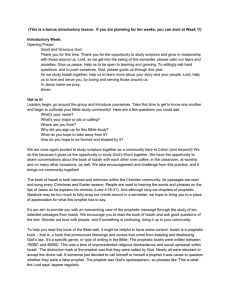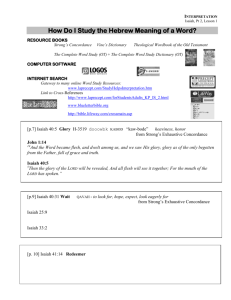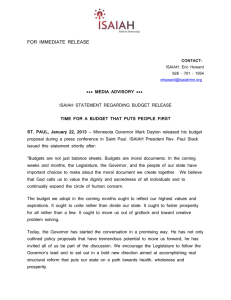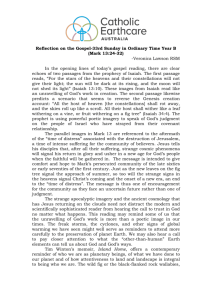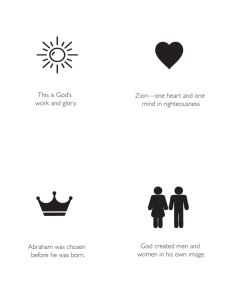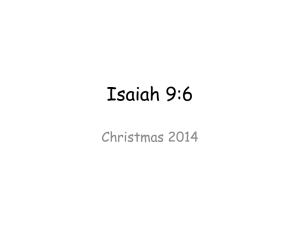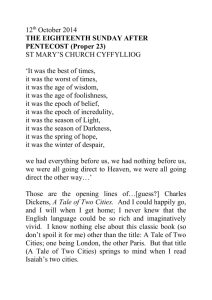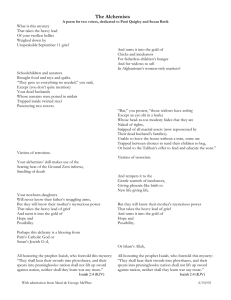For the yoke of his burden, the rod of his oppressor, s
advertisement
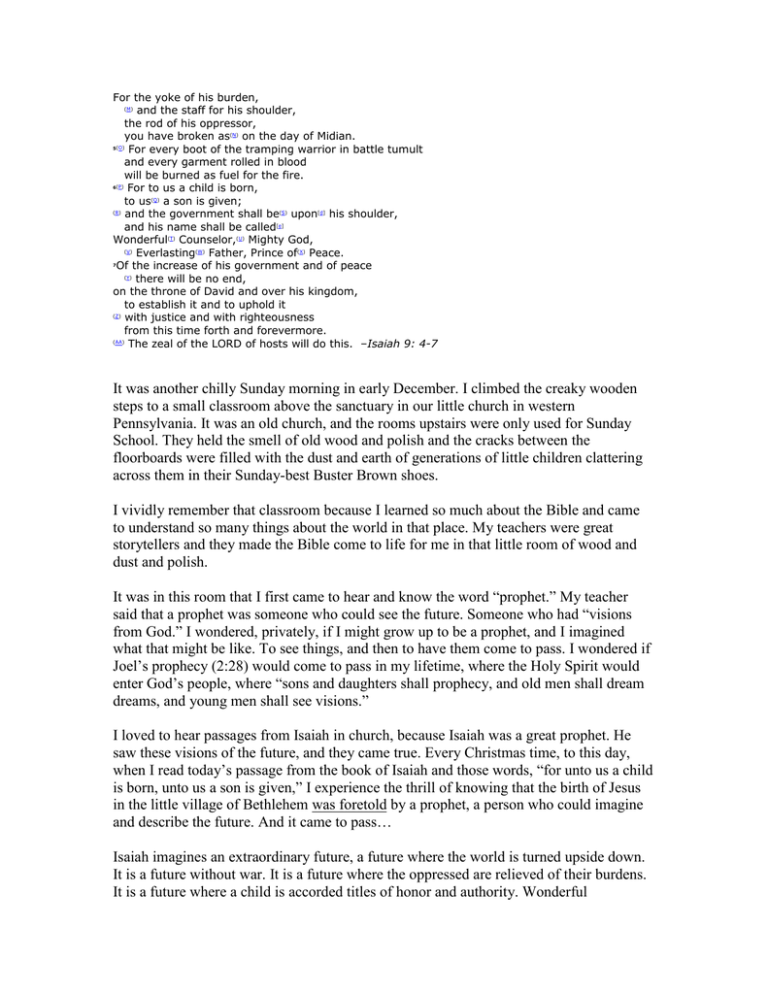
For the yoke of his burden, (M) and the staff for his shoulder, the rod of his oppressor, you have broken as(N) on the day of Midian. 5(O) For every boot of the tramping warrior in battle tumult and every garment rolled in blood will be burned as fuel for the fire. 6(P) For to us a child is born, to us(Q) a son is given; (R) and the government shall be(S) upon[d] his shoulder, and his name shall be called[e] Wonderful(T) Counselor,(U) Mighty God, (V) Everlasting(W) Father, Prince of(X) Peace. 7 Of the increase of his government and of peace (Y) there will be no end, on the throne of David and over his kingdom, to establish it and to uphold it (Z) with justice and with righteousness from this time forth and forevermore. (AA) The zeal of the LORD of hosts will do this. –Isaiah 9: 4-7 It was another chilly Sunday morning in early December. I climbed the creaky wooden steps to a small classroom above the sanctuary in our little church in western Pennsylvania. It was an old church, and the rooms upstairs were only used for Sunday School. They held the smell of old wood and polish and the cracks between the floorboards were filled with the dust and earth of generations of little children clattering across them in their Sunday-best Buster Brown shoes. I vividly remember that classroom because I learned so much about the Bible and came to understand so many things about the world in that place. My teachers were great storytellers and they made the Bible come to life for me in that little room of wood and dust and polish. It was in this room that I first came to hear and know the word “prophet.” My teacher said that a prophet was someone who could see the future. Someone who had “visions from God.” I wondered, privately, if I might grow up to be a prophet, and I imagined what that might be like. To see things, and then to have them come to pass. I wondered if Joel’s prophecy (2:28) would come to pass in my lifetime, where the Holy Spirit would enter God’s people, where “sons and daughters shall prophecy, and old men shall dream dreams, and young men shall see visions.” I loved to hear passages from Isaiah in church, because Isaiah was a great prophet. He saw these visions of the future, and they came true. Every Christmas time, to this day, when I read today’s passage from the book of Isaiah and those words, “for unto us a child is born, unto us a son is given,” I experience the thrill of knowing that the birth of Jesus in the little village of Bethlehem was foretold by a prophet, a person who could imagine and describe the future. And it came to pass… Isaiah imagines an extraordinary future, a future where the world is turned upside down. It is a future without war. It is a future where the oppressed are relieved of their burdens. It is a future where a child is accorded titles of honor and authority. Wonderful Counselor! Mighty God! Prince of Peace! It is a future where this child, human flesh and bones, will be given the responsibility to govern, and in his governing there will be peace. Peace without end. In this passage, Isaiah exercises what Mary Emily Briehl Duba describes as “subversive imagination” in the book On Our Way: Christian Practices for Living a Whole Life. Isaiah imagines a world where oppressed people throw off the yoke of oppression and break the rod used to beat them into submission. Isaiah imagines a world where a child, who has no authority, no voice, no rights, is proclaimed King. Isaiah imagines a world that wages peace. Briehl Duba describes imagination as subversive, when it “envisions a future unlike the present and a present different than it is” and when imagination “challenges the unjust and violent realities of the present.” She challenges us to imagine this new world turned upside down. She challenges us to do more than dream dreams. She challenges us to live into them. So, in this Advent Season, how do we exercise our capacity to imagine a present different than it is? We can imagine a present without homelessness and we bring our individual talents and capacities to work toward that vision here, in this place. We can imagine a present where children do not go to sleep at night hungry and we bring our resources together as a community to make it so. We can imagine a present where people of different religious beliefs come together in a community of love and mutual respect and we live that vision into being. We can live into the vision where those who are marginalized and demonized in our culture are brought into the center of our community and where they are made to feel welcome, and respected, and wholly a part of this place. Isaiah imagines a future unlike his present and a present different than it is. The world turned upside down. In this Advent, my friends, let us prophesy. Let us see visions; dream dreams. And let us do more than exercise subversive imagination. Let us commit our lives in service to make it so…Amen. Mark A. Heckler December 2, 2010
